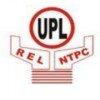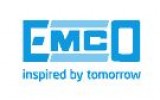ITI Electrician
200+ ITI Electrician Interview Questions and Answers

Asked in Godrej Industries Group

Q. What is a unit, and how do you measure current and voltage?
A unit is a standard measurement used to quantify physical quantities. Current is measured in amperes (A) and voltage is measured in volts (V).
A unit is a fixed quantity used as a standard of measurement.
Current is the flow of electric charge in a circuit and is measured in amperes (A).
Voltage is the electric potential difference between two points in a circuit and is measured in volts (V).
The unit of current, ampere, is named after the French physicist André-Marie Ampère.
The...read more

Asked in Kanchan India

Q. Star dalta starter control diagram and revers forword starter control diagram and dol starter control diagram. They asked and l give him the answer and i draw both three. Control diagram in a blank page.
Explaining control diagrams for Star Delta, Revers Forward, and DOL starters.
Star Delta starter is used for high voltage motors and reduces starting current
Revers Forward starter is used for reversible motors and changes direction of rotation
DOL starter is used for small motors and provides direct power to the motor
Control diagrams show the connections between the starter and motor
These diagrams help in troubleshooting and maintenance of the electrical system
ITI Electrician Interview Questions and Answers for Freshers

Asked in Godrej Industries Group

Q. How many types of transformers are there?
There are several types of transformers used in electrical systems.
Power Transformers
Distribution Transformers
Instrument Transformers
Auto Transformers
Isolation Transformers
Step-up and Step-down Transformers
Three-phase Transformers
Single-phase Transformers

Asked in JSW Steel

Q. Types of MCB... Tyeps of electrical Enstrument.. Types of electrical used panel
MCB stands for Miniature Circuit Breaker. It is a type of electrical switch that automatically shuts off the electrical circuit during an overload or short circuit.
Types of MCB include Single Pole MCB, Double Pole MCB, Triple Pole MCB, and Four Pole MCB.
Other types of electrical instruments include Voltmeter, Ammeter, Multimeter, Oscilloscope, and Earth Tester.
Types of electrical panels commonly used are Distribution Panels, Control Panels, and Motor Control Centers.

Asked in Godrej Industries Group

Q. What is the difference between current and voltage?
Current and voltage are two fundamental concepts in electricity. Current is the flow of electric charge, while voltage is the potential difference that drives the flow.
Current is the rate of flow of electric charge, measured in amperes (A).
Voltage is the force or pressure that pushes the electric charge to flow, measured in volts (V).
Current flows through a conductor, while voltage exists across a conductor.
Current is analogous to the flow of water in a pipe, while voltage is...read more

Asked in Tata Motors

Q. What is a transformer?
A transformer is an electrical device that changes the voltage and current levels while maintaining the frequency, commonly used for stepping up or stepping down voltage.
Transformers consist of primary and secondary coils wound around a core made of ferromagnetic material.
They work on the principle of electromagnetic induction, where changing current in the primary coil induces a voltage in the secondary coil.
Step-up transformers increase voltage levels for long-distance powe...read more
ITI Electrician Jobs




Asked in JSW Steel

Q. AC/ DC Defrents... How many electrical tyeps of switch
AC and DC are two types of electrical current. There are several types of switches used in electrical circuits.
AC stands for Alternating Current and DC stands for Direct Current.
AC current changes direction periodically while DC current flows in one direction only.
Types of switches include toggle switches, rocker switches, push-button switches, and rotary switches.
Switches can be classified based on their function, such as on/off switches, selector switches, and momentary swi...read more

Asked in Br.CAT International

Q. How do you work in an oil unit?
Working in an oil unit requires knowledge of electrical systems, safety protocols, and equipment maintenance.
Understand the electrical systems used in oil units
Follow safety protocols to prevent accidents and injuries
Perform regular maintenance on equipment to ensure proper functioning
Be aware of potential hazards such as flammable materials and high-pressure systems
Communicate effectively with other workers to coordinate tasks and ensure safety
Be prepared to work in challeng...read more
Share interview questions and help millions of jobseekers 🌟


Asked in Godrej Industries Group

Q. What are MCB and MCCB?
Mcb stands for Miniature Circuit Breaker and MCCB stands for Molded Case Circuit Breaker.
Mcb is a type of circuit breaker that is used for low voltage applications.
MCCB is a type of circuit breaker that is used for high voltage applications.
Both Mcb and MCCB are used to protect electrical circuits from overloads and short circuits.
Mcb is usually rated for currents up to 100 amps, while MCCB can handle currents up to 2500 amps.
Examples of applications for Mcb include residenti...read more

Asked in Bosch Rexroth India

Q. The basic principle behind working of a transformer is the phenomenon of mutual induction between two windings linked by common magnetic flux. The figure at right shows the simplest form of a transformer. Basic...
read moreA transformer works on the principle of mutual induction between two windings linked by a common magnetic flux.
Transformers consist of two inductive coils - primary and secondary windings.
When an alternating current flows through the primary winding, it creates a changing magnetic field which induces a voltage in the secondary winding.
The ratio of the number of turns in the primary winding to the number of turns in the secondary winding determines the voltage transformation r...read more

Asked in Utility Powertech

Q. How is the speed of a turbine controlled?
The speed of a turbine is controlled by adjusting the flow of steam or water.
The speed of a turbine can be controlled by adjusting the flow rate of the working fluid, such as steam or water.
By increasing or decreasing the flow rate, the turbine's speed can be increased or decreased accordingly.
This control mechanism allows for efficient operation and optimization of power generation systems.
For example, in a steam turbine, the speed can be controlled by adjusting the steam fl...read more

Asked in Paradeep Phosphates

Q. What is motor ? Ans-A motor is a electrical device which changing electrical energy to mechanical energy
A motor is an electrical device that converts electrical energy into mechanical energy.
Converts electrical energy to mechanical energy
Used in various applications such as industrial machinery, appliances, vehicles, etc.
Types include AC motors, DC motors, servo motors, etc.
Common examples include electric fans, washing machines, electric vehicles, etc.

Asked in Edac Engineering

Q. How many types of work permits are there?
There are typically two types of work permits: general work permits and specific work permits.
General work permits allow individuals to work in any occupation or industry.
Specific work permits are issued for a particular occupation or industry.
Examples of specific work permits include electrician work permits, plumber work permits, etc.

Asked in Utility Powertech

Q. How many windings are used in an autotransformer?
The number of windings used in an auto transformer can vary depending on the specific application.
Auto transformers can have a single winding or multiple windings.
In a single winding auto transformer, the primary and secondary windings are connected together.
In a multiple winding auto transformer, there are separate primary and secondary windings.
The number of windings determines the voltage transformation ratio of the auto transformer.
For example, a step-down auto transforme...read more

Asked in Br.CAT International

Q. How do you work with a PLC panel?
PLC panel is operated by programming the logic controller to control the electrical components.
Understand the logic of the system and program the PLC accordingly
Connect the input and output devices to the PLC panel
Test the system to ensure proper functioning
Regular maintenance and troubleshooting of the panel
Examples of PLC panels include conveyor systems, assembly lines, and HVAC systems

Asked in Edac Engineering

Q. How many types of lamps are there?
There are several types of light lamps used in various applications.
Incandescent lamps
Fluorescent lamps
LED lamps
Halogen lamps
High-intensity discharge lamps
Compact fluorescent lamps
CFL lamps
Neon lamps
Mercury vapor lamps
Sodium vapor lamps
Metal halide lamps
Ultraviolet lamps
Infrared lamps

Asked in EMCO

Q. How do you connect a 5kW motor, and what materials are needed?
Connecting a 5kW motor requires proper wiring, safety measures, and understanding of electrical components.
Use appropriate wire gauge: For a 5kW motor, typically use at least 2.5mm² copper wire.
Ensure proper voltage supply: Check if the motor operates on 230V or 400V.
Install a motor starter: Use a contactor and overload relay to protect the motor.
Connect the motor to a suitable power source: Ensure the circuit can handle the motor's load.
Implement safety measures: Use fuses o...read more

Asked in Br.CAT International

Q. In side panel dressings and termination
In side panel dressings and termination
Side panel dressings refer to the coverings or enclosures on the sides of electrical panels.
Termination refers to the process of connecting electrical wires or cables to the appropriate terminals or connectors.
Proper side panel dressings and termination are essential for safety and to ensure efficient electrical connections.
Examples of side panel dressings include metal or plastic covers, doors, or panels that protect the internal compon...read more

Asked in Edac Engineering

Q. How many types of cable glands are there?
There are various types of cable glandings used in electrical installations.
Cable glandings are used to secure and terminate cables in electrical installations.
Types of cable glandings include armored cable glandings, unarmored cable glandings, and explosion-proof cable glandings.
Armored cable glandings are used for cables that have steel wire armor or steel tape armor.
Unarmored cable glandings are used for cables that do not have any armor.
Explosion-proof cable glandings are...read more

Asked in Paramount Cables

Q. What principle does a transformer operate on?
Transformers work on the principle of electromagnetic induction to transfer electrical energy between circuits.
Transformers operate based on Faraday's Law of Electromagnetic Induction.
They consist of primary and secondary coils wound around a magnetic core.
When alternating current flows through the primary coil, it creates a magnetic field.
This magnetic field induces a voltage in the secondary coil, allowing energy transfer.
Example: Step-up transformers increase voltage for l...read more

Asked in Sidwal Refrigeration Industries

Q. Do you know how to operate a chiller machine?
Yes, I know how to run a chiller machine.
I have experience in operating and maintaining chiller machines.
I am familiar with the different components and controls of a chiller machine.
I can troubleshoot and diagnose issues with chiller machines.
I am trained in following safety protocols while working with chiller machines.

Asked in Godrej Industries Group

Q. What is a DOL starter?
D.OL starter is a type of motor starter used to start and stop three-phase motors.
D.OL stands for Direct-On-Line.
It is the simplest and most common type of motor starter.
It directly connects the motor to the power supply, providing full voltage to the motor.
It is suitable for small to medium-sized motors.
It does not provide any protection against overloading or short circuits.
It is commonly used in applications such as pumps, fans, and conveyors.

Asked in Kotak Mahindra Bank

Q. What are the different types of motors and their working principles?
Different types of motors include DC motors, AC motors, synchronous motors, asynchronous motors, etc.
DC motors operate on direct current and are commonly used in appliances and vehicles.
AC motors operate on alternating current and are used in industrial applications.
Synchronous motors maintain a constant speed and are used in applications requiring precision.
Asynchronous motors vary in speed and are commonly used in household appliances.
Other types include stepper motors, ser...read more

Asked in Kotak Mahindra Bank

Q. What is the power connection process for a star-delta control system?
The power connection process for a star-delta control system involves connecting the motor windings in a specific sequence to reduce starting current.
Connect the motor windings in a star configuration for starting.
Switch to a delta configuration once the motor reaches a certain speed.
This helps reduce the starting current and provides a smooth transition for the motor.
Ensure proper wiring and connections to avoid any electrical issues.
Consult the wiring diagram provided by th...read more

Asked in Br.CAT International

Q. How do you install a transmitter?
To install a transmitter, follow these steps
Choose a suitable location for the transmitter
Mount the transmitter securely
Connect the power supply to the transmitter
Connect the transmitter to the device it will be transmitting to
Configure the transmitter settings as required

Asked in Paradeep Phosphates

Q. Types of motor ? Ans-Three types motor AC and DC and universal motor
There are three main types of motors: AC motors, DC motors, and universal motors.
AC motors run on alternating current and are commonly used in household appliances.
DC motors run on direct current and are often found in battery-operated devices.
Universal motors can run on both AC and DC power sources, making them versatile for various applications.
Asked in Electrical India

Q. What is the formula for calculating power in watts?
Power formula is P = VI or P = I²R or P = V²/R, where P is power in watts, V is voltage in volts, and I is current in amperes.
Power formula is used to calculate the power consumed by an electrical circuit.
The formula can be expressed as P = VI or P = I²R or P = V²/R.
P is power in watts, V is voltage in volts, and I is current in amperes.
For example, if a circuit has a voltage of 120V and a current of 5A, the power consumed would be 600W.
The power formula is essential for calc...read more

Asked in Sidwal Refrigeration Industries

Q. Can you perform maintenance on HVAC systems?
Yes, I can do maintenance HVAC work.
I have experience in maintaining and troubleshooting HVAC systems.
I am familiar with the various components of HVAC systems such as air handlers, compressors, and thermostats.
I can perform tasks like cleaning filters, checking refrigerant levels, and inspecting electrical connections.
I have successfully completed HVAC maintenance projects in my previous roles.
I stay updated with the latest industry standards and regulations related to HVAC ...read more

Asked in BSL

Q. What is the method to calculate the RPM and amperage of a three-phase motor?
Calculate RPM using frequency and pole count; amperage using power and voltage in a three-phase motor.
RPM (Revolutions Per Minute) can be calculated using the formula: RPM = (120 × Frequency) / Number of Poles.
For example, a 4-pole motor running at 60 Hz: RPM = (120 × 60) / 4 = 1800 RPM.
Amperage can be calculated using the formula: Amperage = Power (Watts) / (Voltage × √3).
For example, for a 10 kW motor at 400V: Amperage = 10000 / (400 × √3) ≈ 14.43 A.

Asked in Br.CAT International

Q. How do you work in a control room?
Working in a control room involves monitoring systems, managing operations, and ensuring safety protocols are followed.
Monitor equipment and systems using control panels and screens.
Communicate with team members to coordinate responses to issues.
Analyze data and reports to identify trends or problems.
Implement safety protocols and emergency procedures when necessary.
Maintain logs of operations and incidents for future reference.
Interview Questions of Similar Designations
Interview Experiences of Popular Companies








Reviews
Interviews
Salaries
Users

















